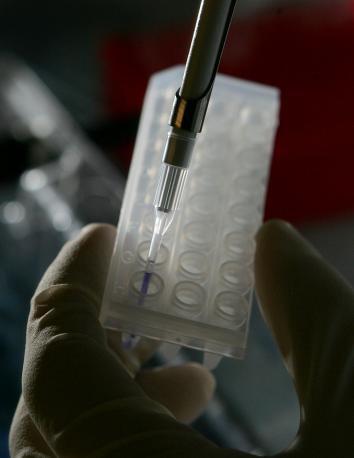Last month, the FDA told 23andMe to stop marketing direct-to-consumer genetic testing kits. The FDA wants assurance that the company has “analytically or clinically validated” the genetic data that they provide their customers. The company has claimed that it provides information and data, not medical advice, but this week it announced that for now, it will only sell “raw” genetic data analysis and ancestry reports, just not health interpretations.
Observers quickly took sides, trying to pick out which party will, and should, prevail. The eventual outcome could have huge ramifications on the nascent personal genetics industry. But this spat is a draw—because both the FDA and 23andMe are in the wrong.
At the center of the showdown between 23andMe and the FDA are cultural differences in how industries treat data and what different people want from data. The word data may conjure an image of objectivity, but how we use it matters as much or more than the numbers themselves. Clinicians, patients, and startups (not to mention hospital administrators, biomedical researchers and insurance companies) all need data to do different things.
This mismatch represents a real culture clash between the health care and technology sectors’ approaches to our data. To the doctor, more data isn’t necessarily always better. For doctors, patient data is time- and labor-intensive to manage and is valuable only when it helps in clinical decisions and actions for individual patients. Too much data can lead to unnecessary treatment, for instance, or take time away from patient care. Meanwhile, startups see user data as a kind of “new oil,” representing value just waiting to be mined and monetized. Many startups’ business models are built on the data that users generate. But for doctors’ bottom lines, patient data is akin to a byproduct of their more valuable services.
Patients, meanwhile, value their data—whether from an app or an outfit like 23andMe—because the numbers reflect their stories and provide opportunities to connect and converse with care providers and others. A primary care doctor isn’t likely to be interested in routine pedometer readings for most of her patients. But doctors are extremely interested in encouraging sedentary patients to be more active. Data can be powerful for self-reflection and individual change, even without medical evaluation and expertise.
The FDA recognizes this. This fall, it announced guidelines for mobile medical apps, differentiating between the uses of data that help patients and consumers monitor and track their own health, and those that transform our smartphones into medical devices or provide diagnosis.
That brings us back to 23andMe. At present, the data generated from direct-to-consumer genomic testing is of little value to most doctors. Genetic information rarely helps doctors and their patients make decisions, and when does, it comes from tests that are more advanced than what 23andMe provides. Still, 23andMe data can motivate people to make healthier choices and inspire conversations with their doctors. In this case, 23andMe is at the frontier of our ability to imagine data working differently in different contexts, providing what their customers want, but perhaps not what doctors need.
The challenge here is that the health information that 23andMe provides is meaningless to most people without some kind of interpretation. By continuing to provide customers their “raw” genetic data after the FDA decision, 23andMe makes the argument that health data can be a separate product from health interpretation. The FDA rightly sees it as risky when such data, separated from medical expertise, verges on do-it-yourself medical advice or puts potentially inaccurate or incomplete information into people’s hands. For 23andMe such a choice may be a great data strategy, but it is a terrible public health policy.
Still telling people that they shouldn’t be able to obtain the data that is generated by their own bodies and genetic histories seems outdated and paternalistic in our data-obsessed moment. The U.S. health care reality is, at least it when comes to data, we are at once both patients and consumers. It’s a complicated reality that doesn’t fit with either D.C. policy or Silicon Valley rhetoric.
Dr. Gina Neff’s research on data and health care work has been funded by Intel and the National Science Foundation.
